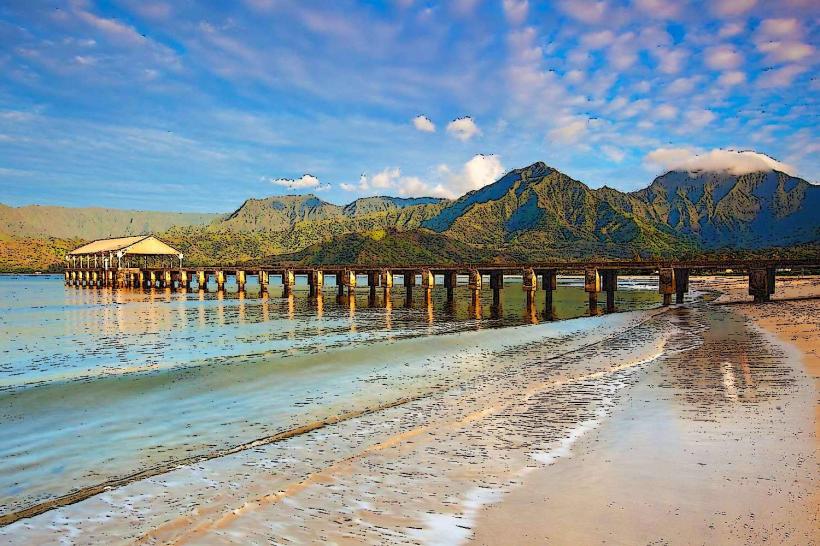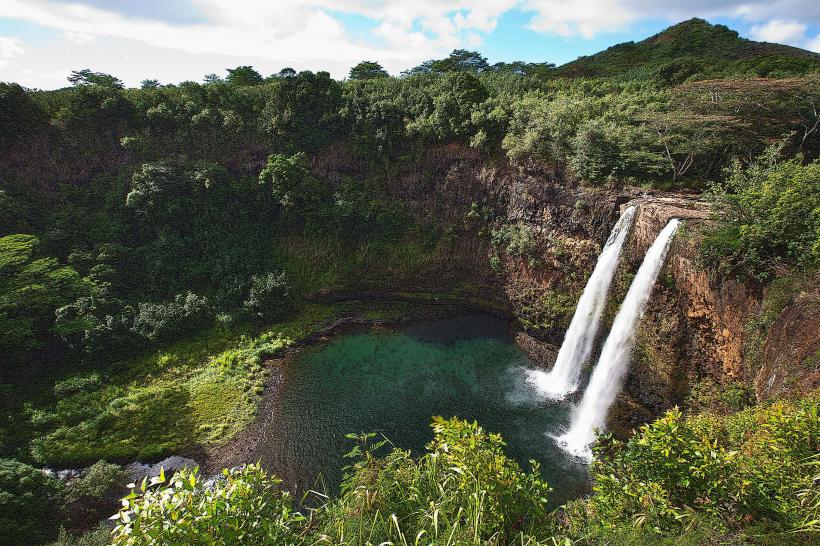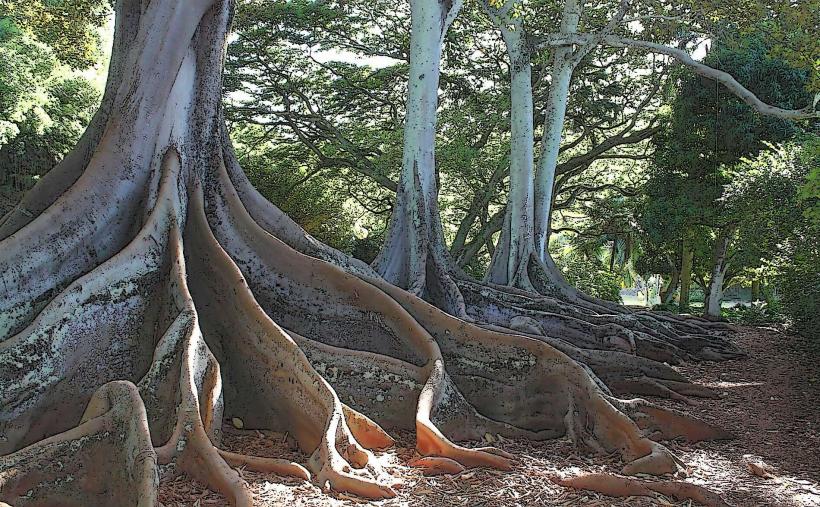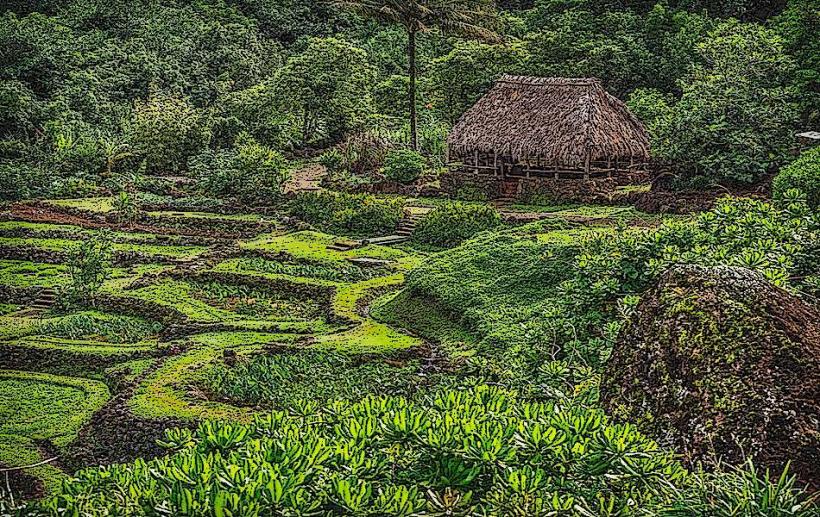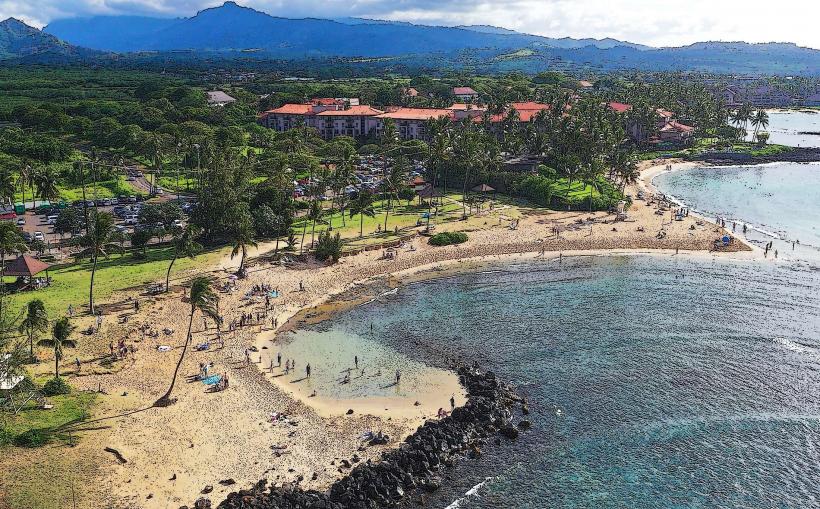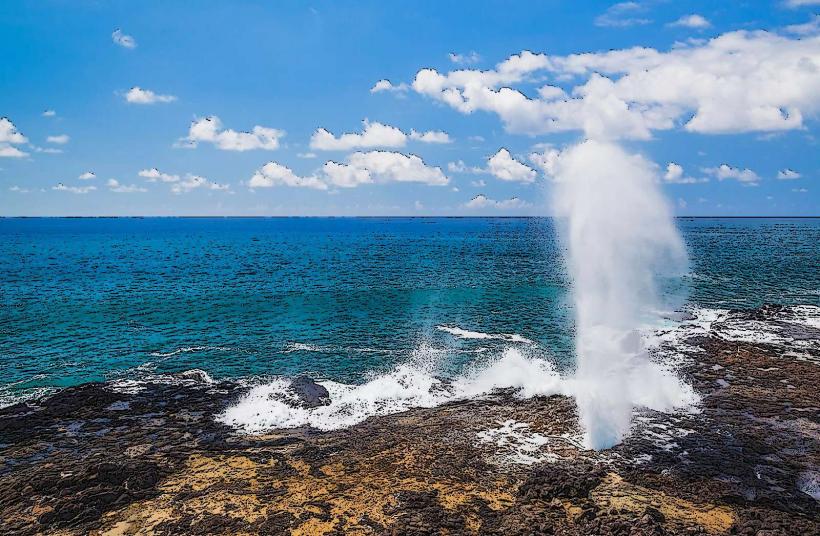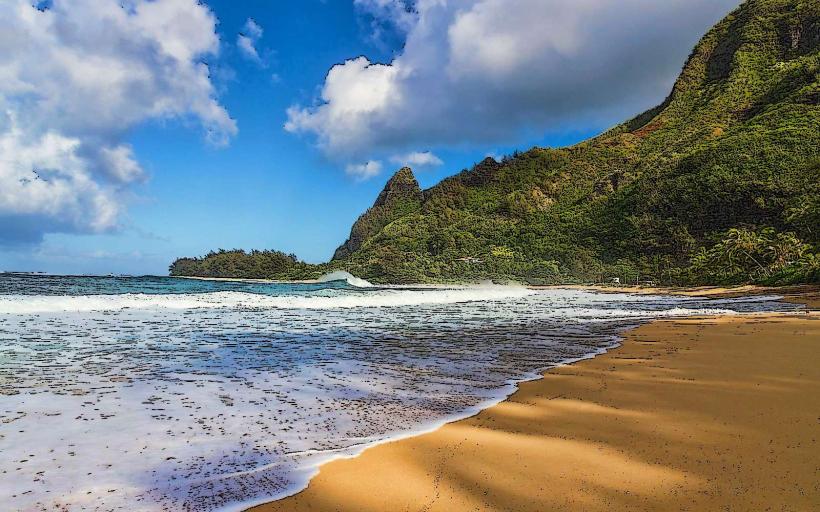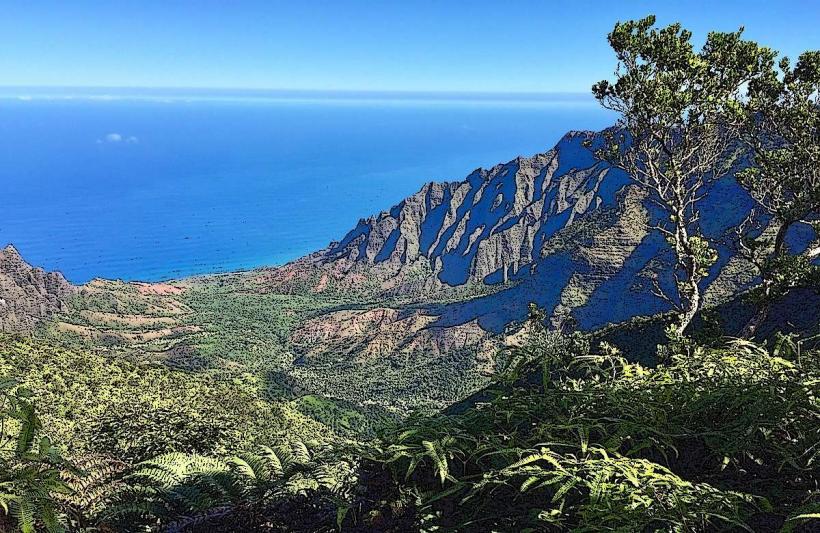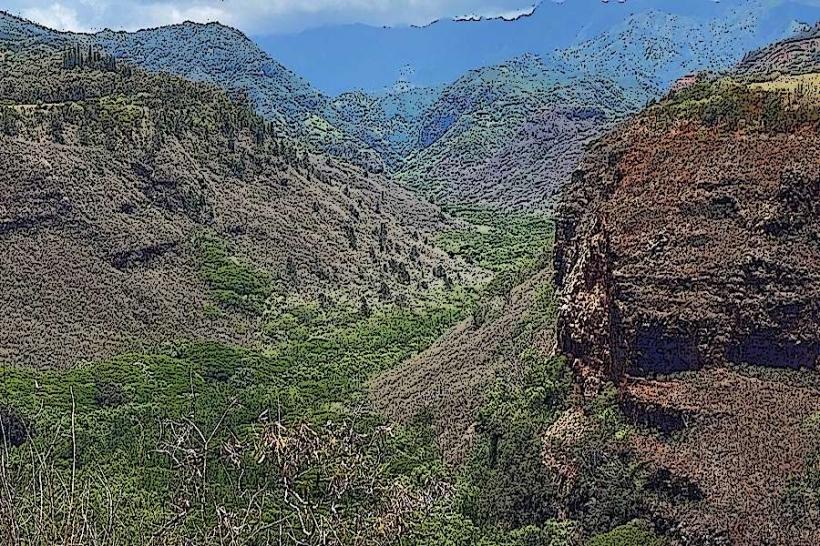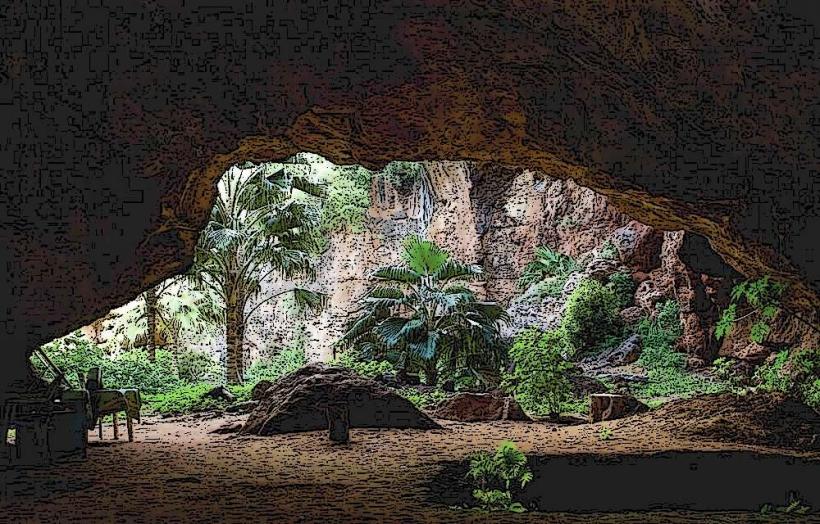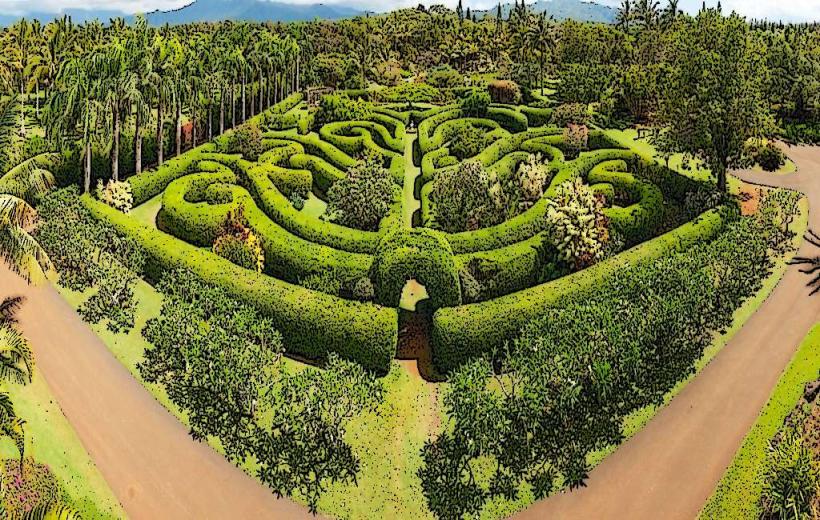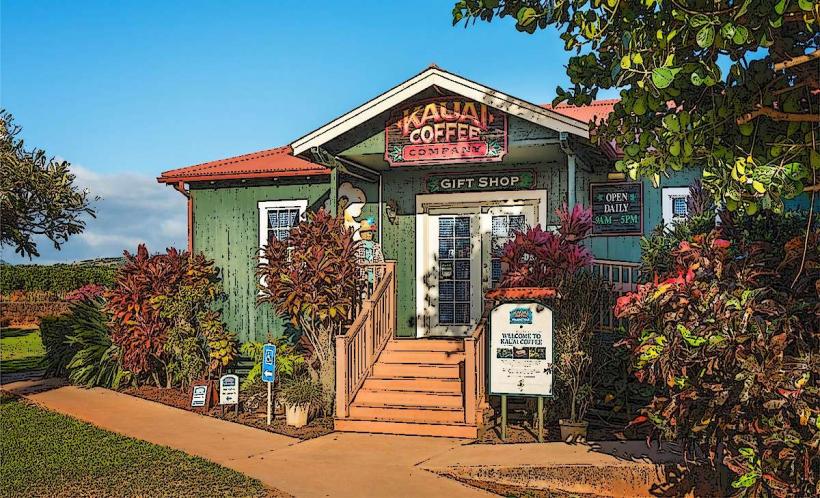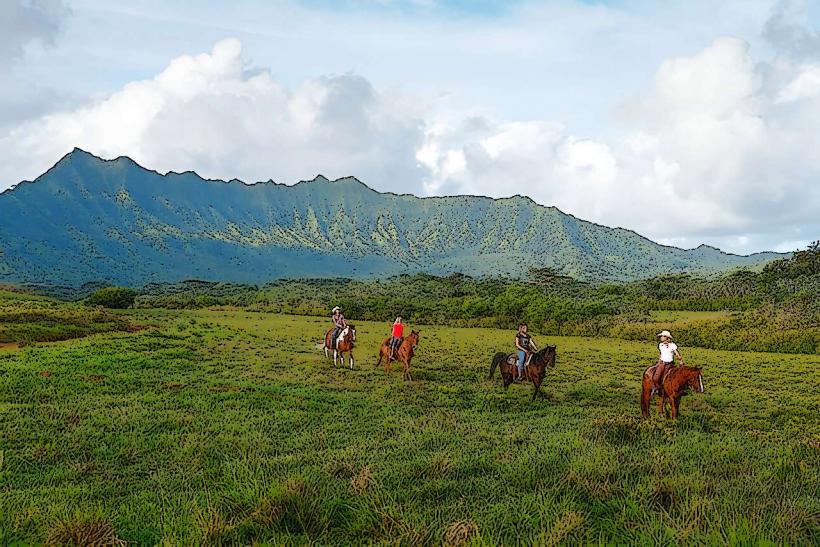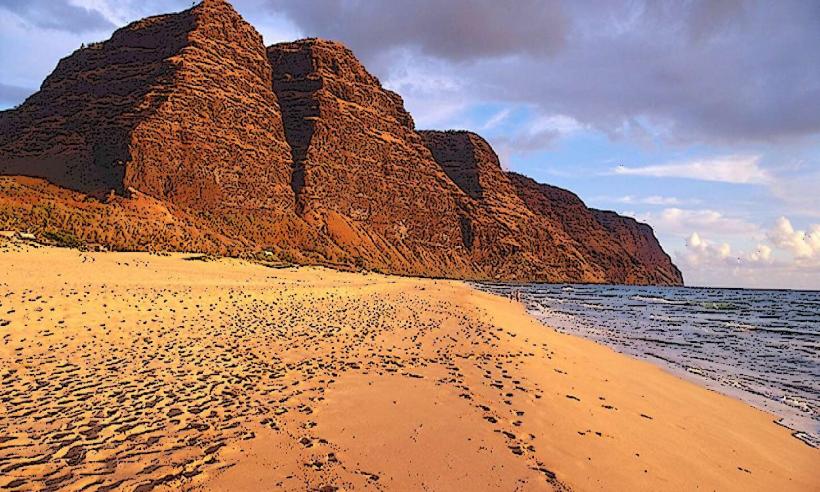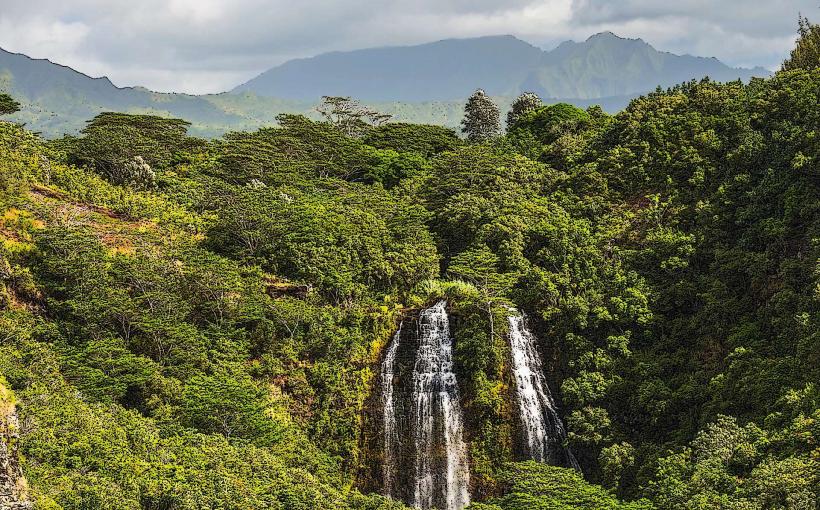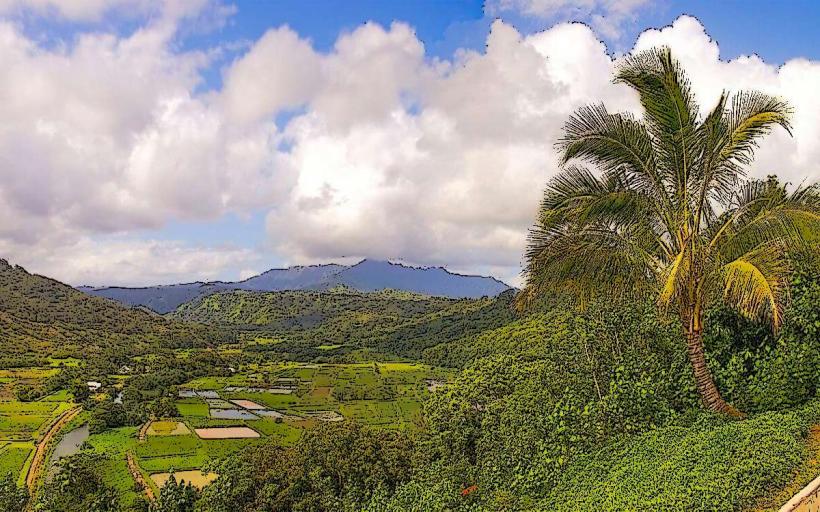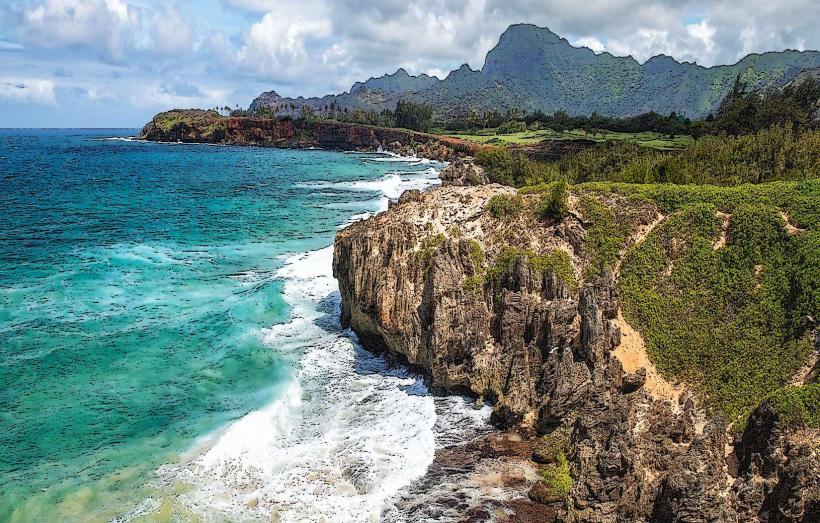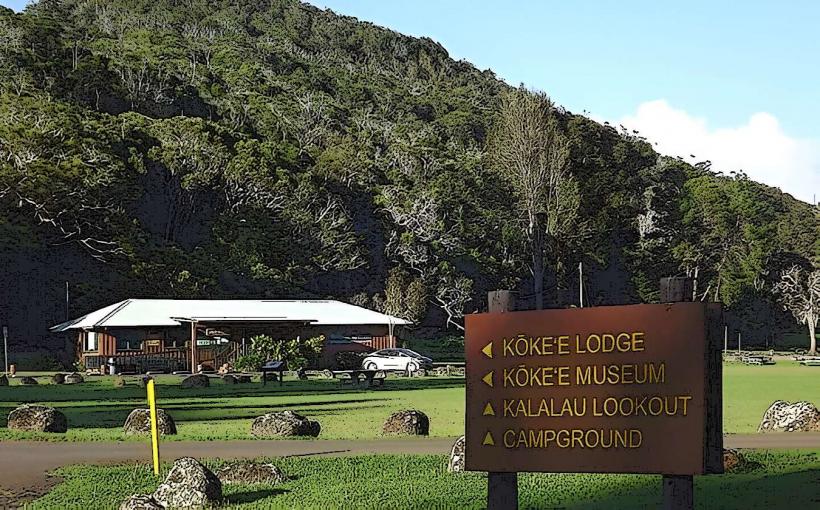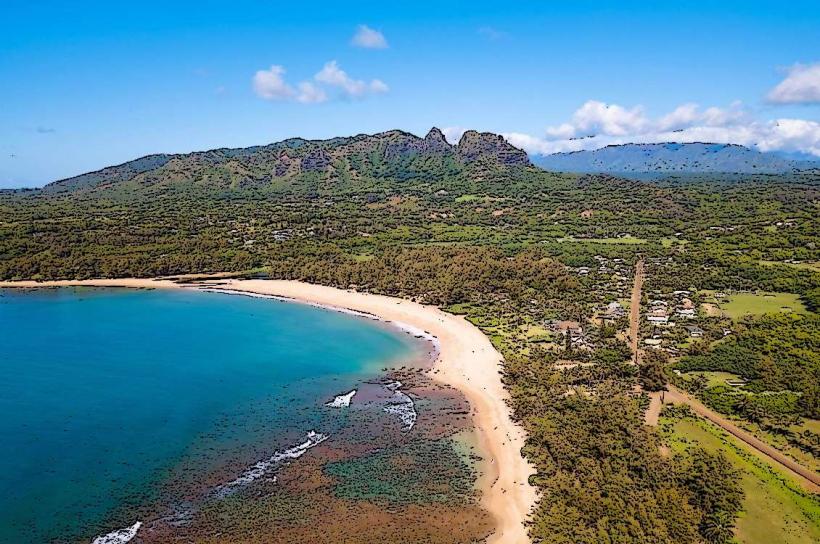Information
Landmark: Kauai MuseumCity: Kauai
Country: USA Hawaii
Continent: North America
Kauai Museum, Kauai, USA Hawaii, North America
The Kauai Museum is a cultural institution located in Lihue, Kauai, Hawaii, USA. It preserves and exhibits the history, art, and culture of Kauai.
Visual Characteristics
The museum is housed in a former elementary school building constructed from concrete with a stucco finish. The main building is a single-story structure painted a pale yellow. It features a red tile roof and white trim around the windows and doorways. The grounds include a small courtyard with tropical plants and a paved walkway leading to the entrance.
Location & Access Logistics
The Kauai Museum is situated at 4428 Rice Street in Lihue. It is approximately 1.6 kilometers (1 mile) southeast of the Lihue Airport (LIH). Public parking is available in a dedicated lot adjacent to the museum. Several Kauai Bus routes serve the Lihue area, with stops within a 5-minute walk of the museum entrance.
Historical & Ecological Origin
The museum building was originally constructed in 1927 as the Lihue School. It was later repurposed and opened as the Kauai Museum in 1960. The museum's purpose is to collect, preserve, and exhibit artifacts and information related to the history, culture, and arts of Kauai and its people.
Key Highlights & Activities
Visitors can view exhibits on Hawaiian history, including ancient Hawaiian artifacts, missionary-era items, and displays on the island's plantation past. The museum also features rotating art exhibitions showcasing local artists. Educational programs and workshops are offered periodically.
Infrastructure & Amenities
Restrooms are available within the museum. Limited shaded areas are present in the courtyard. Cell phone signal (4G/5G) is generally reliable in Lihue. No on-site food vendors are present, but several dining establishments are located within a short walking distance in downtown Lihue.
Best Time to Visit
The museum is open Tuesday through Saturday. The best time of day for photography of the exterior is in the morning when the light is softer. The weather on Kauai is generally pleasant year-round, but the drier months are typically from April to October.
Facts & Legends
The museum houses the largest collection of kapa (bark cloth) in Hawaii, including pieces dating back to the early 19th century. A notable artifact is the "Feather Lei of Queen Emma," a significant piece of Hawaiian royalty and craftsmanship.
Nearby Landmarks
- Nawiliwili Harbor (1.2km Southeast)
- Kalapakī Beach (1.8km Southeast)
- Kukui Grove Center (2.5km Southwest)
- Grove Farm Homestead Museum (3.1km West)
- Lihue Airport (1.6km Northwest)


